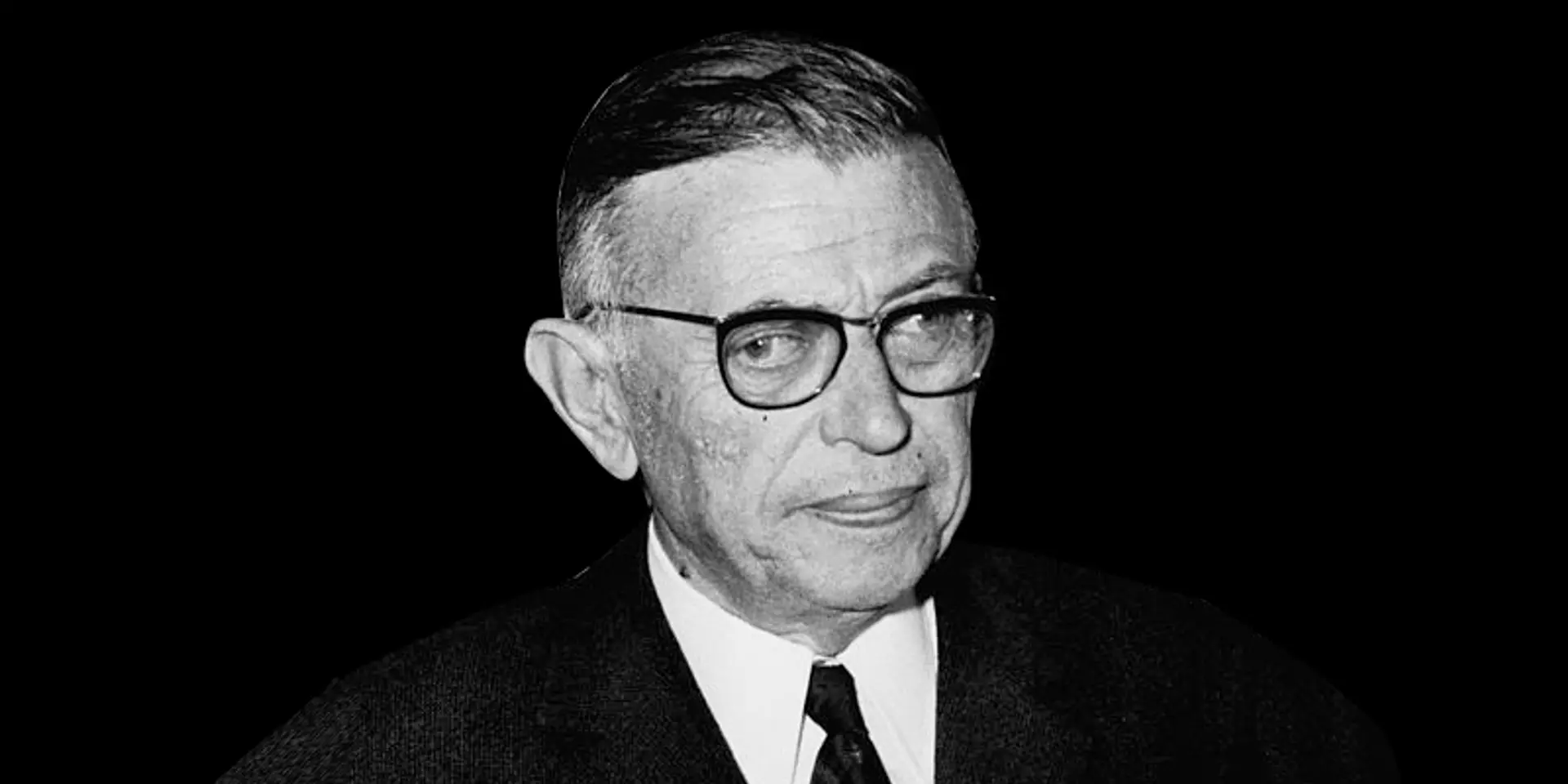To be is to be: Jean-Paul Sartre on existentialism and freedom
"Being is. Being is in-itself. Being is what it is."
Jean-Paul Charles Aymard Sartre is one of the most important philosophers of all time. Despite his work garnering considerable flak over the years, his theories on existentialism and freedom cement his place among the most influential Western philosophers of the 20th-century and beyond.

Born in Paris on June 21, 1905, Sartre's early work focused on themes of existentialism as exemplified by his first novel Nausea and later the essay Existentialism and Humanism. After spending nine months as a German prisoner of war in 1940, Jean-Paul Sartre began exploring the meaning of freedom and free will and in 1940, he penned his principal philosophical work — Being and Nothingness: a phenomenological essay on ontology. Today, on Sartre's 112th birthday, we look at some of the key aspects of his philosophical contemplations.
The anguish of freedom
"Man is condemned to be free; because once thrown into the world, he is responsible for everything he does."
Jean-Paul Sartre believed that human beings live in constant anguish, not solely because life is miserable, but because we are 'condemned to be free'. While the circumstances of our birth and upbringing are beyond our control, he reasons that once we become self-aware (and we all do eventually), we have to make choices — choices that define our very 'essence'. Sartre's theory of existentialism states that “existence precedes essence”, that is only by existing and acting a certain way do we give meaning to our lives. According to him, there is no fixed design for how a human being should be and no God to give us a purpose. Therefore, the onus for defining ourselves, and by extension humanity, falls squarely on our shoulders. This lack of pre-defined purpose along with an 'absurd' existence that presents to us infinite choices is what Sartre attributes to the “anguish of freedom”. With nothing to restrict us, we have the choice to take actions to become who we want to be and lead the life we want to live. According to Sartre, each choice we make defines us while at the same time revealing to us what we think a human being should be. And this incredible burden of responsibility that the free man has to bear is what relegates him to constant anguish.
Living in bad faith
"Everything has been figured out, except how to live."
Jean-Paul Sartre decried the idea of living without pursuing freedom. The phenomenon of people accepting that things have to be a certain way, and subsequently refusing to acknowledge or pursue alternate options, was what he termed as "living in bad faith". According to Sartre, people who convince themselves that they have to do one particular kind of work or live in one particular city are living in bad faith. In Being and Nothingness, Sartre's renown discourse on phenomenological ontology, he explains the concept of bad faith through the example of a waiter who is so immersed in his job that he considers himself to be first a waiter rather than a free human being. This waiter is so convinced that his present job is all that he can do, that it's all that he's meant to do, that he never considers the option of doing anything else in life. Sartre believed that we alone are responsible for everything that we really are, and by not exploring the myriad possibilities life presents to us we alone are responsible for restricting our freedom. "We are left alone without an excuse," he said.
Rage against the machine
An ardent believer in the Marxist school of thought, Jean-Paul Sartre touted money as the one factor that restricts a person's freedom. The need of money, he reasoned, is the excuse people give themselves when they shut down the idea of exploring unconventional life choices. Society's acquiescence of money infuriated Sartre and capitalism was the political system he blamed for the phenomenon. He likened capitalism to a machine that traps people in a cycle of working in jobs they don't like so that they can buy things they don't need. This necessity of material things, he argued, did not exist in reality but rather was a man-made construct that led people to deny their freedom and consider living in other ways as foolhardy. Sartre was a vocal opponent of capitalism and took part in several Parisian protests in 1968 against the system. As a Marxist, he greatly admired Fidel Castro and Che Guevara, both of whom were vehemently against capitalism and were establishing a communist state in their respective countries.
“We do not know what we want and yet we are responsible for what we are — that is the fact.”
Ultimately, Sartre was a humanist who wanted us to break free of our self-fastened shackles and attain our massive potential. He wanted us to acknowledge our freedom, to not be restricted by the popular definition of reality, and live life as we wished to live it. And despite people uncovering several flaws in the way he presented his ideals, his ideals themselves are certainly worth considering.







